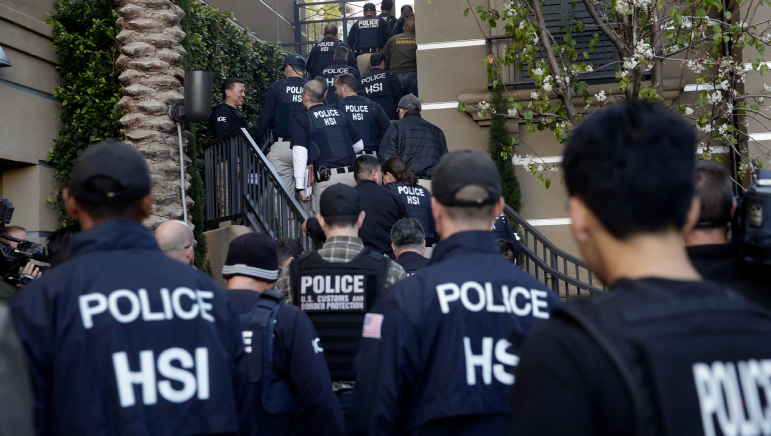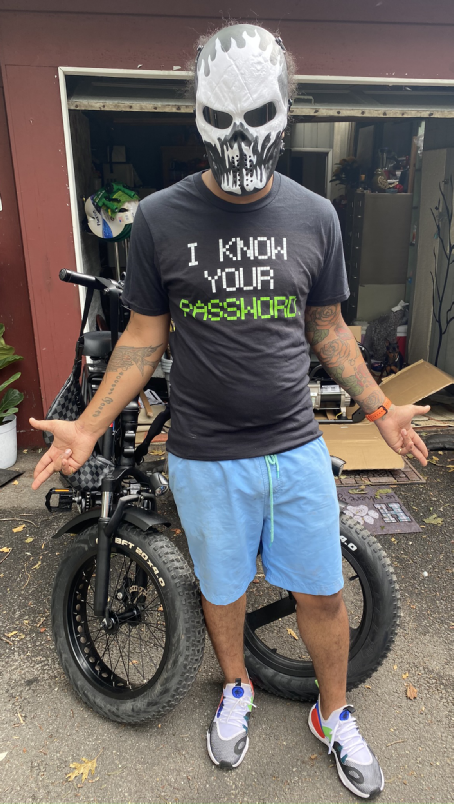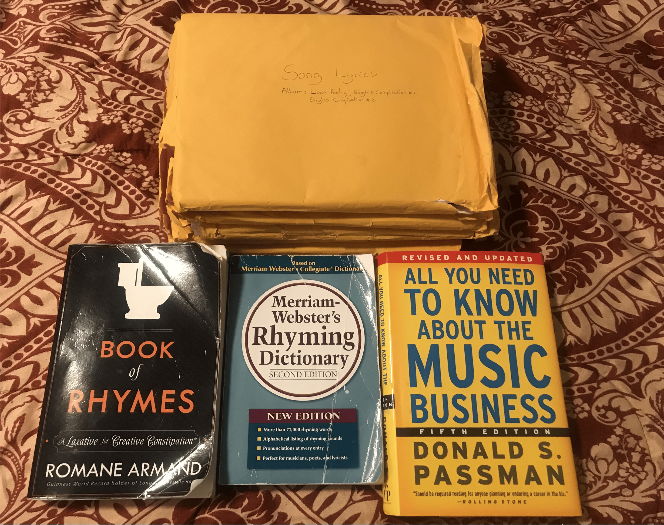Dancehall on Trial; Inside Stamma Gramma's Massive Fake ID Operation



By Ari Levinas, Alex Rothschild and Anthony Johnson
May 1,2025, 12:34 a.m. ET

NEW YORK — Michael K. Williams, a Jamaica College High School graduate, known in the dancehall music community as Stamma Gramma, was active for nearly a decade in both Kingston, Jamaica, and New York City. Williams gained recognition for his 2013 song Scammer Anthem, which pioneered the rise of the "chopping" subgenre in dancehall—a style of music centered on themes of financial fraud and street hustling, particularly lottery scamming.
In 2022, the Broadcasting Commission of Jamaica issued a ban prohibiting the broadcast of songs that promote or glorify lottery scamming, cyber crimes, and related illegal activities.
Williams, who held a Bachelor of Science degree in Computer Information Systems, later became the subject of a federal investigation into a widespread fraudulent identification operation. Following a coordinated raid on his properties in New York and Connecticut, he was charged with multiple counts, including production of false identification documents and bank fraud. He pleaded guilty in July 2022 and was sentenced to serve two years at Allenwood FCI; one of the most notorious federal prisons in Pennsylvania.
The Empire No One Saw Coming
Federal Investigation
The scheme first came to light when a fraudulent OSHA safety card was flagged during routine inspections at the Jacob Javits Center’s $1.5 billion expansion project in Manhattan. The discovery set off a two-
On January 18, 2021, over 100 agents from Homeland Security Investigations, the Port Authority of New York and New Jersey, the Social Security Administration’s Office of the Inspector General, and the DMV launched a sweeping raid across two states. Williams’ residence in Mamaroneck, New York and a quiet, unsuspecting two story office in Norwalk, Connecticut were simultaneously stormed in what authorities later described as the takedown of “a very sophisticated fake id operation in the East Coast .”
Investigators found industrial forgery equipment, state-
“HSI and its partners will continue to seek out and bring to justice individuals that attempt to turn a profit by selling fake documents that can compromise the health and safety of those working at a job site or allow the bearer to illegally represent themselves by compromising the integrity of government identification documents.” said Homeland Security Investigations (HSI) New York Acting Special Agent in Charge Ricky J. Patel.
”These arrests are the result of the thorough multi-
Williams, authorities allege, engineered an underground marketplace that catered to undocumented workers, and individuals seeking to obscure criminal pasts. The documents helped customers secure jobs, access financial services, and circumvent security checkpoints across the tri-
It was, as one investigator put it, “fraud-
The Architect of Illusion
Williams held a Bachelor of Science degree in Computer Information Systems from Lehman College and had experience in coding, full-
Prosecutors described him as leading a dual existence, managing counterfeit document operations while maintaining a separate personal life. His co-
The case attracted significant attention within U.S. law enforcement agencies due to the scale and sophistication of the alleged activities.
A Sentence, A Shift, and A Second Chance
In July 2022, Michael Williams entered a guilty plea to two counts: production of false identification documents and bank fraud. He agreed to forfeit $297,313.52 and pay $7,723.40 in restitution. Months later, in October 2022, he was sentenced to two years in federal prison.
Assigned to Allenwood Federal Correctional Institution in Pennsylvania, Williams spent his sentence in near-
While this article focuses on the crimes that led him there, it’s what came after that may prove to be the most unexpected chapter in his story.
From Pioneer to Pariah — or Prophet?
Once revered for his musical foresight, Williams now views his past as prophetic—and damning. “I was the first to sing about scammers,” he once said, “but the universe gave me a taste of what that really means.”
As part of his sentencing preparation, Williams underwent a forensic psychological review. The report—written by Forensic Mitigation Specialist Reynaldo Cusicanqui—detailed a childhood riddled with violence, isolation, and trauma. His development was marred by emotional neglect and psychological abuse. The damage, the report concluded, impacted his ability to regulate emotion, form identity, and make rational decisions.
This wasn’t merely a story of criminal enterprise. It was one of generational scars, mental health, and the slow unraveling of a mind built for survival in systems stacked against it.
Rehabilitation & Rebirth: The Man Behind the Mask
For many, prison marks the end of a story. But for Michael Williams—Stamma Gramma—it marked the painful birth of a new one.
Sent to Allenwood Federal Correctional Institution in Pennsylvania, Williams entered confinement in disgrace, and emerged two years later not just a free man—but, by his own account, a reformed one.
“Prison was a game changer for me,” he wrote in one of the journals smuggled out to his fiance, Angelina. “It broke the man I thought I was, and rebuilt the man I needed to become.”
Incarceration offered no privileges for fame or former glory. It stripped him to the bone, exposing every emotional fracture he once masked with notoriety. His time inside became a silent reckoning—a space where distraction was replaced with reflection, and ego was forced to confront its own fabrication.
"Neither the millionaire inmate nor the billionaire prisoner is immune to the mental torture of incarceration," he penned. "The humiliation, the degradation—it breaks the proudest man. But in that breaking, you meet your truth.”
While serving his sentence, Williams says he wrote 368 songs and two unpublished books. According to Williams, He also engaged in extensive reading, completing more than 200 books on subjects including psychology, faith, leadership, philosophy, trauma, and personal development. Individuals familiar with Williams' time in prison stated that he referred to his bunk as "the monk’s cell," describing it as a space focused on reflection and self-
"When a man is imprisoned, he arrives at the intersection of his authentic self," he wrote in another entry. "He sheds every remnant of who he thought he was. Eventually, time forces the mirror to show you what fame and money could not—your soul."
He credits that time as both a reckoning and a resurrection.
The man who once pioneered the glorification of cyber scamming in dancehall now speaks with a softened tone—one not of regret alone, but of resolve. “I thank God for this second opportunity in life,” he wrote. “I could have been facing 30 years. But somehow, mercy found me in hell.”
Now, with notebooks full of songs and a mind sharpened by solitude, Stamma Gramma says he’s ready to step back into the world—not as a myth or a mastermind, but as a man who survived his own undoing.
What will he do with that second chance?
That’s the story the world is about to find out.
HSI federal agents ascended toward the upper floor of Gramma’s two-
Image contributed to The Jamaica Times
Broadcasted on January 18, 2021, News 12 New York covered the federal raid on Gramma’s counterfeit identification operation.


Image contributed to The Jamaica Times

Image contributed to The Jamaica Times

Image contributed to The Jamaica Times

A collection of song lyrics, reference books, and creative materials compiled by Stamma Gramma (Michael K. Williams) during his incarceration. The image shows several envelopes labeled "Song Lyrics" alongside three books used for writing and industry study.
Image contributed to The Jamaica Times

Want more info on Gramma’ fake id racket ?, read:
Two men plead guilty to operating widespread counterfeit document scheme


Want more info on Gramma’ fake id racket ?, read:
Two men plead guilty in massive counterfeit scheme

Use gadgets below to share story:
reads


PRESS ROOM
© 2025, The Jamaica Times, Inc. All Rights Reserved.

Want more info on Gramma’ fake id racket ?, read:
Fake Osha Card At Javits Center Expansion
Construction Uncovers Massive Fake ID Scheme



